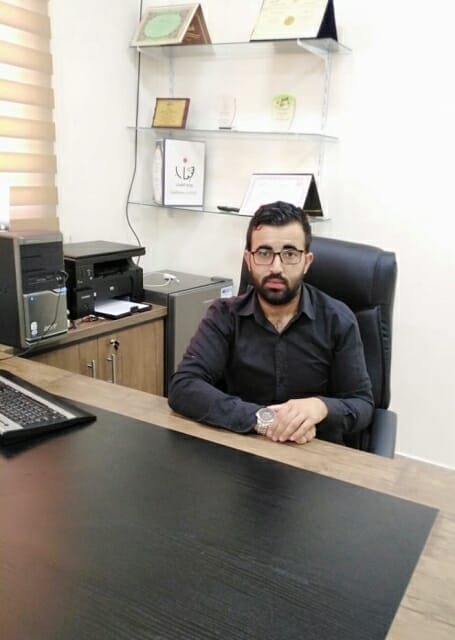News > Blog
Youth Pave Their Way to Decision-Making
Published 11/12/2020 by Global Communities

Empowered youth pave the way for involvement in the decision-making process
Bilal Khalid, a 24-year-old chemical engineer, resides in Burma in Jerash governorate, north of the capital. Since 2008 Bilal has been a volunteer at Burma Youth Center, which aims to empower the youth of Burma. In 2017-2019, he was nominated by his fellow youth to become the head of the administrative body of the Center, where he revamped the scope of work to include capacity building activities and support youth initiatives. Through this experience, the Ministry of Youth recognized Bilal as a youth leader.
“Through this experience, I learned that with enough persistence, one can achieve! I hope that through the Youth Unit, I can support youth in my community towards development and prosperity.”
—Bilal Khalid, youth leading member of Eshrak Initiative
In 2018, USAID YouthPower entered the community of Burma which is similar to other communities in Jordan, in that it has a large number of youth and lacks quality services to meet the needs of the community. Bilal joined USAID YouthPower through community outreach and engagement activities, followed by his participation in learning activities, all leading to his selection as a member of USAID YouthPower’s Volunteer Ambassadors Network.
Alaa Nawaf, 23, is a university student in his fifth and last year of working toward a Bachelor’s degree in Pharmacy from the Jordan University of Science and Technology in Irbid. Like Bilal, Alaa has volunteered for more than 10 years in civil society organizations, which supported him in conducting an initiative at his university aiming to provide support to students across all departments. Alaa came across USAID YouthPower in summer 2018, and although he faced challenges in managing his time between his university classes and the program activities at first, our friend managed to show outstanding commitment and became a member of USAID YouthPower’s Volunteer Ambassadors Network.
Earlier this year, Bilal and Alaa played a vital role in leading a youth-designed initiative titled Eshrak, which aims to open a youth unit at the Municipality of Burma, to address the lack of opportunities for youth to participate in decision-making processes. The youth started their journey by holding meetings with representatives from the Local and Municipal councils of Burma and conducting field visits to the councils. Additionally the youth met with the mayor of Burma, who welcomed their ideas with great interest, and even dedicated space in the municipality building for the Youth Unit. On August 31, the youth core team signed an agreement with the mayor at a closing ceremony of the initiative and a launching ceremony of the Youth Unit.
“USAID YouthPower developed my knowledge in drafting policy-papers which will support me in my journey at the Youth Unit. I also learned the importance of sharing knowledge and experiences with fellow youth.”
—Alaa Nawaf, youth member of Eshrak Initiative
Another champion is Mohammed Husni, a 19-year-old high school student who also resides in Burma. Mohammed’s first encounter with USAID YouthPower was through volunteering at Eshrak initiative. Mohammed has a background in volunteering in youth-led activities, and he joined Eshrak out of his belief that such efforts will enable a more inclusive decision-making process.
“As a volunteer, I also look forward to seeing initiatives that attract and contain youth, empowering them for political engagement and participation and the decision-making process,” Mohammed said. After showing his enthusiasm in the volunteer process, our young friend was included as a core team member leading the Eshrak initiative.
USAID YouthPower deploys innovative and multilayered capacity building approaches to empower youth such as Bilal, Alaa and Mohammed to act as engaged citizens and productive members of society. It provides them with the agency to advocate for themselves and to shape services designed to better prepare them to enter higher education, vocational training and the workforce.





